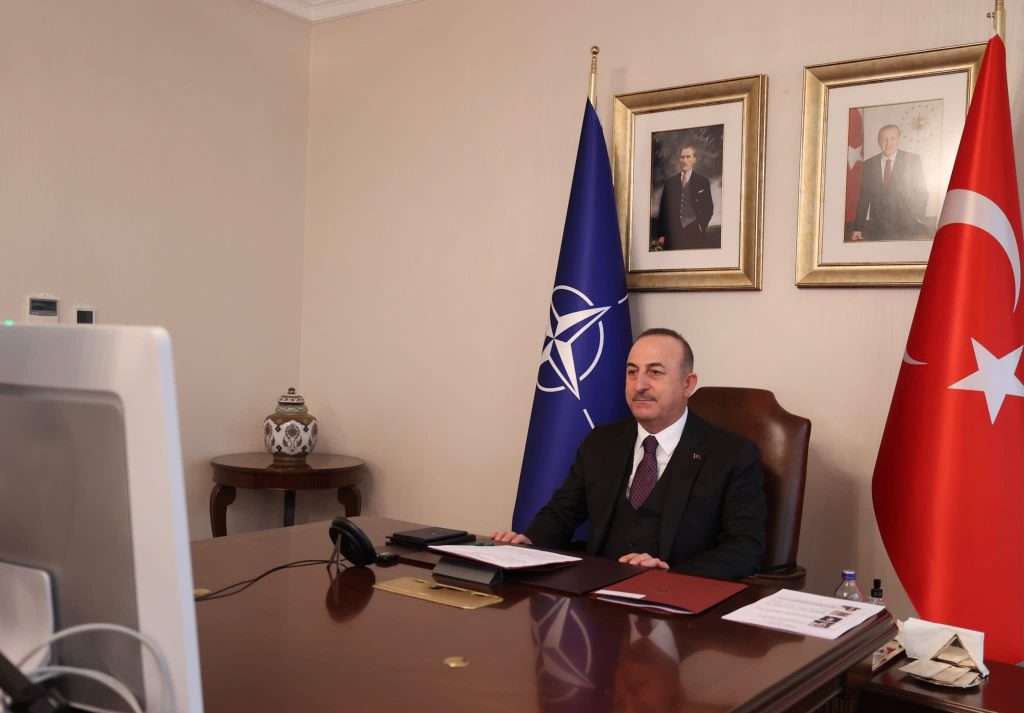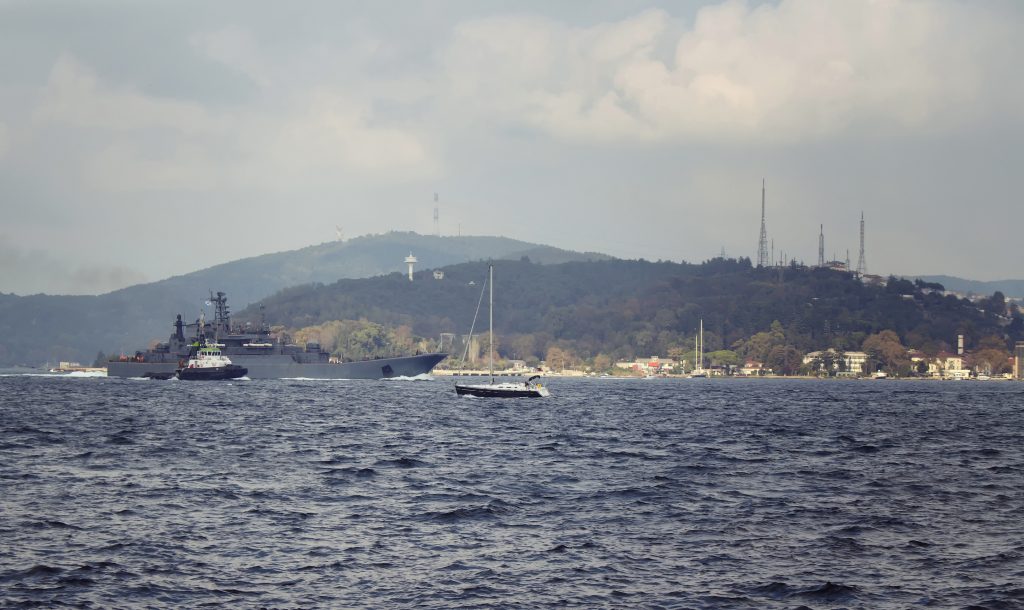Turkiye could close the Bosphorus and Dardanelles straits to warships if the Turkish President and Parliament declares the conflict between Russia and Ukraine a “war”, the Turkish Foreign Minister Mevlüt Çavuşoğlu has said.
Ukraine has officially requested Turkiye to stop Russian warships from accessing the straits, which the Turkish government has the right to do under the Montreux Convention providing certain terms are met.
However, even if Turkiye barred the straits to Russian warships, they still have the right to return to their home bases.
“Turkey can stop the passage of warships through the straits. However, there is something special in the Montreux Convention. If there is a request for the ships of the warring countries to return to their bases, then they must be allowed,” explained Foreign Minister Çavuşoğlu in an interview with Turkish daily Hürriyet.
“If we accept the state of war legally, this process will start. Secondly, if we accept the state of war, we will prohibit the passage of warships [through straits] in the context of Montreux. But even if we bar them, the Russians have such a right,” Çavuşoğlu continued.

Vasyl Bodnar, the Ukrainian ambassador to Ankara, told reporters on Feb. 24 that his country had made an official request to Turkiye to close the Dardanelles and Bosphorus straits to Russian warships. Ankara has yet to officially reply.
The 1936 Montreux Convention gives merchant vessels the freedom of passage through the Dardanelles and Bosphorus straits. However, the movement of warships are subject to multiple restrictions, partly determined by where their home country is. If the vessels are from countries with a Black Sea coastline (riparian states), they have the right to return home.
Under Article 19 of the Montreux Convention, “Vessels of war belonging to belligerent Powers shall not, however, pass through the Straits except in cases arising out of the application of Article 25 of the present Convention, and in cases of assistance rendered to a State victim of aggression in virtue of a treaty of mutual assistance binding Turkey, concluded within the framework of the Covenant of the League of Nations, and registered and published in accordance with the provisions of Article 18 of the Covenant.”
The same article also states, “Notwithstanding the prohibition of passage laid down in paragraph 2 above, vessels of war belonging to belligerent Powers, whether they are Black Sea Powers or not, which have become separated from their bases, may return thereto.”
The Turkish Ministry of Foreign Affairs website also outlines the principal provisions of the Convention in relation to the movement of vessels of war through the Turkish straits:
- Aircraft carriers whether belonging to riparian states or not, can in no way pass through the Turkish Straits.
- Only submarines belonging to riparian states can pass through the Turkish Straits, for the purpose of re-joining their base in the Black Sea for the first time after their construction or purchase, or for the purpose of repair in dockyards outside the Black Sea.
- The total number and the maximum aggregate tonnage of all foreign naval forces which may be in course of passage through the Turkish Straits are limited to 9 and 15,000 tons respectively.
- The maximum aggregate tonnage which non-riparian States may have in the Black Sea is 45,000 tons.
- In this regard, the maximum aggregate tonnage of the vessels of war that one non-riparian State may have in the Black Sea is 30.000 tons.
- Vessels of war belonging to non-riparian states cannot stay more than 21 days in the Black Sea.
- Passages through the Turkish Straits are notified to Turkey through diplomatic channels prior to intended passages. The notification time is 8 days for vessels of war belonging to riparian States, and 15 days for those of non-riparian States.
Russia invaded Ukraine on 24 February 2022. The military action by Moscow has been globally condemned and the international community have started to impose stiff economic and cultural sanctions against Russia.





